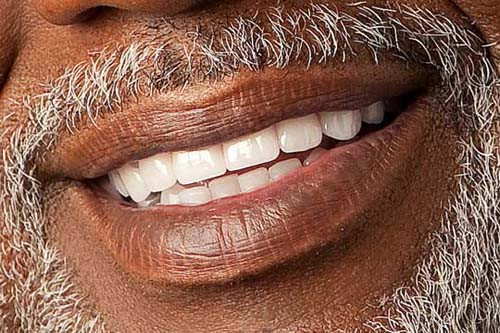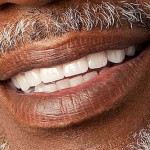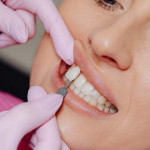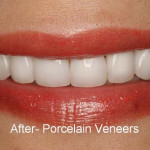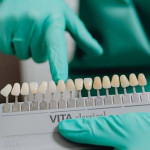Why Dental Veneers ?
"Most dental patients are surprised by the number of imperfections dental veneers can correct," stated Dr. Lauren Nguyen, a leading cosmetic dentist and owner of Pinnacle Dental in Houston, Texas. "Veneers can solve moderate to minor issues with teeth such as cracks, chips, misshapen, or gaps and transform them into evenly-shaped teeth. But the desire to transform stained teeth into beautiful white teeth is the most common reason for dental veneers. In addition, since veneers can help patients avoid undergoing multiple dental procedures to correct some of the other issues, they can save patients time and money."
What Type Of Dental Veneer Is Best?
There are as many as five types of dental veneers but the two primary types of dental veneers are porcelain veneers and composite (resin) veneers. One type of dental veneer is temporary and the other two are seldom used by dentists.
Porcelain Veneers
Porcelain veneers are considered the most durable and longest-lasting with a lifespan of 10 to 20 years depending on patient use and care. They are also biocompatible which means that they do not cause allergic reactions to the tissues in the mouth as do other types of materials. They are also extremely stain resistant and offer a cosmetic "tooth-like" appearance that is considered superior. Porcelain dental veneers are the most expensive and do require some enamel removal for bonding.
Composite Veneers
Composite veneers (resin veneers) are less expensive, require less enamel removal for bonding, and can usually be applied in one clinic visit. And they can be repaired if broken. However, their lifespan is usually between 5 to 7 years and they are more prone to discoloration and staining than porcelain veneers.
Lumineers
Lumineers are made of extra-thin porcelain laminate material. They are less expensive but also have a higher chance of detachment and their extra-thin structure will not hide all dark spots from underlying teeth.
Palatal Veneers
Palatal Veneers are designed for use on the inside portions of the teeth. These are the parts of the teeth that touch the tongue. They can be constructed from different materials but they are used far less than veneers for the outside portions of the teeth.
Temporary Veneers
Temporary veneers are also called removable veneers because they are constructed with flexible resin. As their name implies, they are temporary and usually applied to the teeth until the permanent veneers are ready for application.
Are Dental Veneers Covered By Insurance?
In most situations, porcelain dental veneers are not covered by dental insurance because they are categorized as non-necessary cosmetic dental procedures. However, there may be exceptions in some dental plans if the dental veneers are considered necessary to save or strengthen a tooth.
Do Dental Veneers Stay White?
Porcelain veneers are highly stain-resistant. They should keep their white appearance for the life of the veneers when the patient practices good oral hygiene. Dental patients should avoid those substances that are known to create stains, such as chewing tobacco.
How Long Do Veneers Last?
Most porcelain veneers will last 10 years but with proper care and treatment, they can last up to 20 years. However, patients should avoid activities such as chewing ice or pencils or using their teeth to open packages. These activities will almost certainly shorten the lifespan of veneers. If the veneers have been worn down or chipped, they should be evaluated by a cosmetic dentist for a replacement.
Pinnacle Dental is a full-service cosmetic dental office serving near-west Houston including the Galleria and Uptown areas and zip codes 77056, 77057, 77024, and 77063. Their extensive experience and advanced technology provide high-quality cosmetic and restorative dentistry. Smile Makeovers are a comprehensive effort to improve the dental patient's smile and dental veneers are fundamental to achieving the final results. An attractive smile radiates self-confidence and health and contributes to the well-being of an individual.
